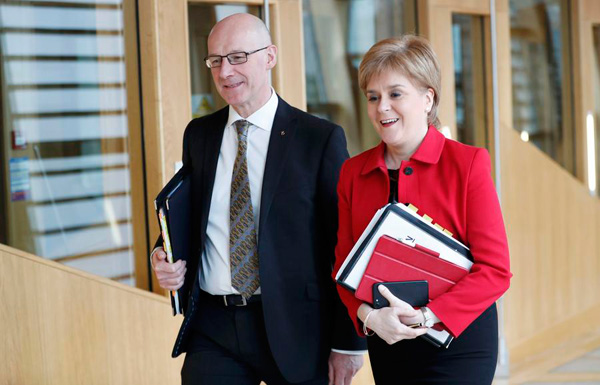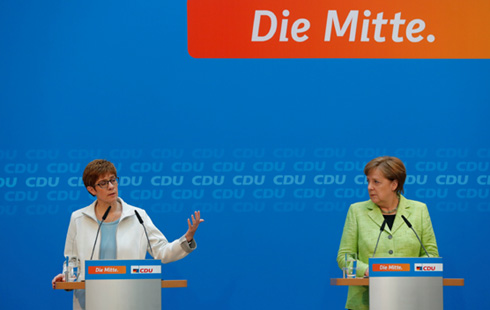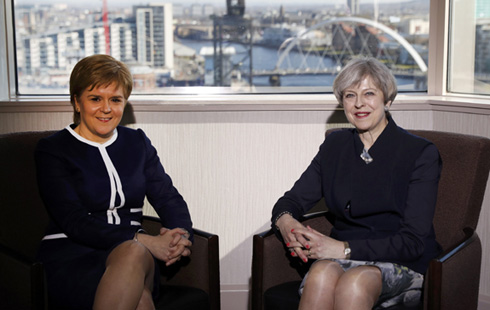Scots vote for second independence referendum
|
 |
|
Scotland's First Minister Nicola Sturgeon and deputy John Swinney arrive to attend a debate on a second referendum on independence at Scotland's Parliament in Holyrood, Edinburgh, Britain, March 28, 2017.??[Photo/Agencies] |
The Scottish Parliament has voted for a second referendum on independence, in the latest fallout from the UK's decision to leave the European Union.
The vote on Tuesday was won by the governing Scottish Nationalist Party with the support of the Scottish Green Party by 69 votes to 59 in favor of a second referendum. It was supposed to take place last Wednesday but was postponed after the attack on the British Parliament in London left five people dead.
Earlier on Tuesday, Scottish First Minister Nicola Sturgeon told Parliament that the changes that Brexit would entail should not be imposed on the Scots.
She said: "We should have the right to decide the nature of that change.The people of Scotland should have the right to choose between Brexit - possibly a very hard Brexit - or becoming an independent country, able to chart our own course and create a true partnership of equals across these islands."
The result puts the Scottish government on a collision course with the UK government, which has said that an independence vote cannot take place until after the UK has left the European Union. The process of leaving the EU will start on Wednesday, when the UK government formally tells the European Commission of its intention to leave the EU. Under current procedures, the UK will leave the EU by March 29, 2019.
The vote followed a two-day debate in the Scottish Parliament over whether the first minister should seek permission from the UK government to hold another referendum between autumn next year and spring 2019.
Theresa May, the British prime minister, said that the time is not right for a referendum because of the complexity of the process of the UK's departure from the EU.
Sturgeon told the Scottish Parliament last week it would be "wrong, unfair and utterly unsustainable"for the UK government to block her request for a vote although she said she was willing to negotiate on the date of the referendum.
Opposition parties claim thatthe Scottish people do not want another referendum - the last one in 2015 saw independence rejected by 55 percent to 45 percent.
The constitutional dilemma is a major consequence of the UK's decision to leave the EU but many others are likely to emerge, particularly in Northern Ireland and the Republic of Ireland.
The positions held by Edinburgh and London appear contradictory. London is arguing that one union is bad while another is good and Edinburgh is arguing that London's decision to leave the European Union means it must leave the British union.
The political life of the UK is likely to be dominated by similar argument for at least the next two years.

























